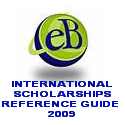ceramics for mechanical components
SELFSURF
The University of Twente is an entrepreneurial research university. It was founded in 1961 and offers education and research in areas ranging from public policy studies and applied physics to biomedical technology. The University has approximately 2700 employees and 8000 MSc and BSc students and is the Netherlands' only campus university.
The chair of Surface Technology and Tribology within the department of Engineering Technology has a job opening for a PhD-student on the project "Mechanical and thermal activated self healing surfaces made of composite ceramics for mechanical components".
Project
The project is part of a national program on self healing materials financed by the Dutch Ministry of Economic Affairs. Self healing materials are recognized as a new class of engineering materials with the capacity to more or less autonomously repair internal damage.
Oxide ceramics have large potential to be applied in technological applications for their high temperature stability and erosion / corrosion resistance. An important limitation for application is a high coefficient of friction when in contact with a countersurface. Besides that a high coefficient of friction does result in energy losses, it also increases the risk of crack growth, originating from the surface. When oxide ceramics, like Al2O3 and ZrO2 and their composites (ZTA and ADZ), are doped with CuO, it is very interesting to observe that a very thin CuO layer is present on the surface after sintering and machining. Previous research has shown that this thin layer is self - healing when a countersurface is sliding over the surface. The project is focusing on further experimental investigation and modelling of this mechanism, a first application of the developed materials in valve seats of engines as well as optimizing the microstructure for specific applications.
Currently, a Postdoc is working on the project for about half a year. His main task is modelling of mass transport responsible for the layer formation. In the beginning of the PhD project a close cooperation and transfer of knowledge with the Postdoc will take place.
The PhD research comprises experimental preparation and characterisation of the samples as well as further modelling of the contact and self healing behaviour of the surface layer. The focus of the PhD student is on coatings on machine elements and optimalisation of the coating for a specific application.
The performance of the self healing composite oxide ceramic will be quantified in a demonstrator valve / valve seat that has to perform under heavy tribological conditions. The demonstrator applications are engines on Compressed Natural Gas (CNG) and enhanced diesel engines for heavy duty applications. This demonstrator will be developed by TNO Science and Industry.
Profile
You have completed a Masters in mechanical engineering, materials science or equivalent with interest in ceramics and/or tribology. You are proficient in spoken and written English and you have well developed social skills to co-operatively work in a research group.
You will be based at the Laboratory for Surface Technology and Tribology of the University of Twente and be joining an innovative and diverse group working on Tribology, Surface Technology and Materials. For more information on the research group visit <http://www.tr. ctw.utwente. nl/> www.tr.ctw.utwente. nl
More information on this PhD studentship can be obtained from Dr. M.B. de Rooij:
Prof.dr.ir. D.J. Schipper: d.j.schipper@ utwente.nl
Please send your application, with Curriculum Vitae, by email to






Post a Comment